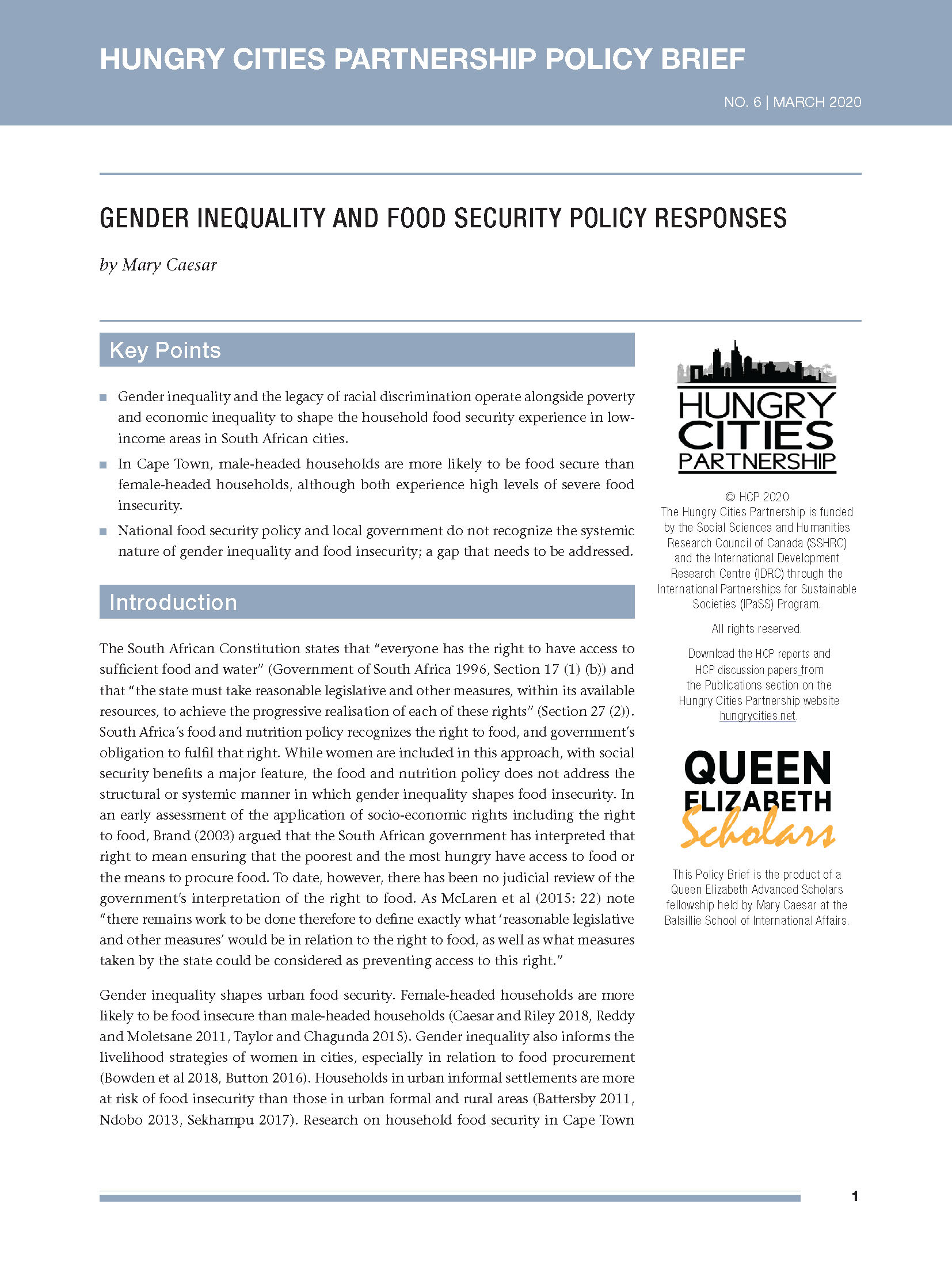Gender inequality and the legacy of racial discrimination operate alongside poverty and economic inequality to shape the household food security experience in low-income areas in South African cities.
In Cape Town, male-headed households are more likely to be food secure than female-headed households, although both experience high levels of severe food insecurity.
National food security policy and local government do not recognize the systemic nature of gender inequality and food insecurity; a gap that needs to be addressed.

